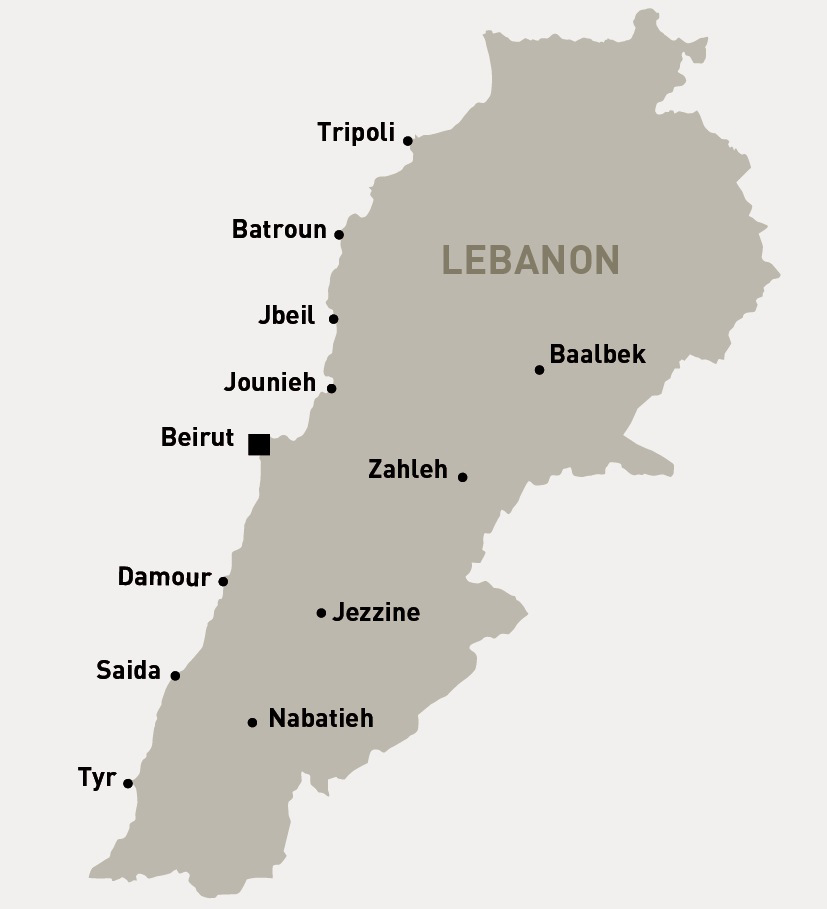A message from southern Lebanon: Stop making cluster bombs
 Sawaneh, Lebanon - In 2006, shortly after Israel ended its 33-day war against Lebanon, 9-year-old Hussein Sultan and his best friend Hassan stepped on a cluster bomb while playing in the backyard of his home in the southern Lebanese village of Sawaneh.
Sawaneh, Lebanon - In 2006, shortly after Israel ended its 33-day war against Lebanon, 9-year-old Hussein Sultan and his best friend Hassan stepped on a cluster bomb while playing in the backyard of his home in the southern Lebanese village of Sawaneh.
Hassan died immediately, while Hussein, now 11, sustained serious injuries to the hands and chest.
"I still suffer from breathing problems at night because shrapnel hit one of my lungs," Hussein told Deutsche Presse-Agentur dpa.
Hussein recalls the incident and describes it as "a nightmare that still haunts him."
On Wednesday representatives of around 100 nations will gather in Oslo to sign a treaty outlawing the use of cluster munitions. Russia, the US - and Israel - will be notable by their absence.
Asked about such a treaty, to which Israel would not be party, Hussein merely said it would be "useless."
Cluster bombs, around 4 million of which were dropped by Israel over southern Lebanon in 2006, are still killing and maiming people in south Lebanon, a region where nearly all the land is used for crops or grazing.
Lebanese Foreign Minister Fawzi Salkouh, who will be signing the Oslo treaty on behalf of Lebanon, said that his country was doing its best to get this treaty signed by many nations to "save the rest of our little children and people as well as the whole world from such dangerous weapons."
Israel, which attacked Lebanon after Hezbollah seized two of its soldiers in a cross-border raid on July 12, 2006, says it used cluster bombs in line with international law, which doesn't bar them outright.
Human Rights Watch, a New York-based rights group, has reported that Hezbollah also used some rockets with cluster components.
It also says Israel has targeted civilian areas when it sprayed the munitions from planes, rockets and artillery during the war.
Dayla Farran, UN spokeswoman for the UN Mine Action Coordination Centre in Lebanon, said children were particularly at risk from the bomblets.
"Many of the bomblets have white ribbons as part of their detonation mechanism, and kids have a tendency to play with them so that is why many of the victims in southern Lebanon are mostly children," Farran said.
Farran estimated that as many as 270 people were wounded by cluster bombs munition since the war ended. About 40 have been killed, she added.
"The bomblets that our teams have found were in backyards, on rooftops as well as in the fields," Farran said.
"Some of the Lebanese victims will be participating in the Oslo gathering to encourage more nations to sign the treaty," Farran added.
According to Farran, clearance teams have cleared 48 million square meters of ground containing cluster bombs and other unexploded weaponry in the south.
Large areas still need to be cleared beneath the surface. Some lower-priority places have yet to be searched properly, Farran said.
"This is a massive task and it will take time," she added.
"Israel's refusal to disclose data of the areas which were targeted has complicated the task of the deminers finding bomblets in the southern Lebanon," according to Southern Lebanon Member of Parliament Yassin Jaber.
"We hope the Oslo convention will make all the nations understand that those weapons should be abolished and not be used at all," Jaber said.
"Most of the cluster bombs which were thrown over Lebanon by Israel failed to explode, and this is what is causing the high casualties among our children and people in the south," Jaber added.
"We hope that the Oslo convention would stigmatize cluster munitions and deter even non-signatory countries from using them again," Jaber said.
For Hussein, his only message to the countries that will not sign the Oslo treaty, like Israel and the US is to "stop manufacturing and using bombs that kill children around the world." (dpa)